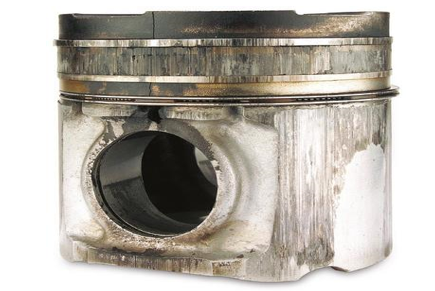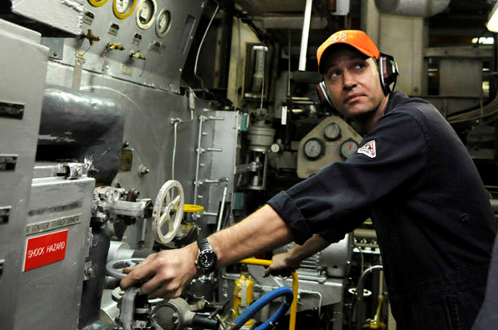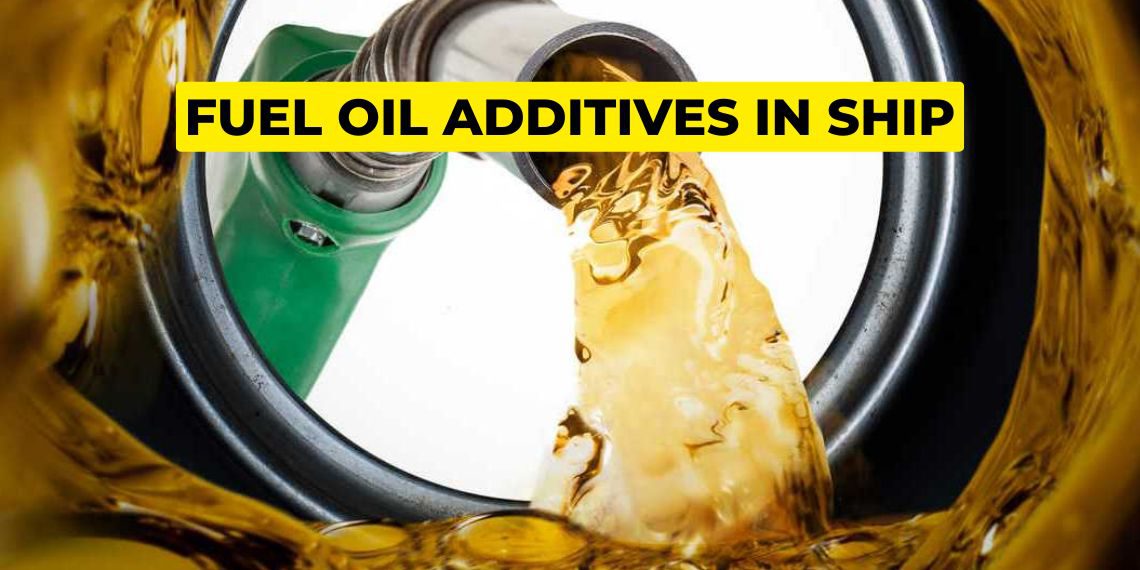Fuel oil additives in ship | The need for Fuel Oil Additives
In today’s maritime industry, the quality of fuel oil available for ships is becoming increasingly unpredictable and prone to deterioration. This poses significant challenges to ship operators, as the deteriorating fuel quality can lead to issues such as sludge formation, decreased fuel stability, and clogged fuel filters. To mitigate these risks and ensure the smooth operation of ships, the use of fuel oil additives has become imperative. In this article, we will dive into the importance of fuel oil additives in ships and their role in preventing costly damages and maintaining optimal performance.

The Need for Fuel Oil Additives:
The quality degradation of fuel oil presents a multitude of problems for ships, ranging from reduced stability to increased sludge formation. One notable incident involved a US ship bunkering oil that was in such poor condition that numerous ship liners were severely damaged. This incident highlights the importance of taking proactive measures to protect ships from the detrimental effects of poor fuel quality.

Fuel oil additives are crucial as they serve as a precautionary measure before bunkering takes place. These additives are introduced into the empty bunker tanks, ensuring that when the fuel is added, it mixes with the chemicals to maintain fuel stability. This process prevents the formation of crystals that could clog the fuel filters or compromise the fuel’s essential properties. By effectively managing the fuel quality, excessive sludge formation is minimized, thus safeguarding the ship’s systems and preventing costly breakdowns.
Preserving Fuel Stability and Preventing Sludge Formation:
Fuel oil additive are instrumental in maintaining fuel stability by inhibiting degradation and oxidation processes. When added to the fuel before bunkering, these additives form a protective barrier that prevents the formation of harmful crystals and sediments. This proactive approach reduces the risk of clogged fuel filters, ensures uninterrupted fuel flow, and mitigates potential damages caused by compromised fuel stability.

Protecting Ship Components and Preventing Damage:
The consequences of using poor-quality fuel can be disastrous for ship components, leading to extensive repairs and expensive downtime. By introducing fuel oil additives, ships can proactively protect their fuel filters, engines, and other vital components from the damaging effects of degraded fuel. The additives act as a lubricating layer, reducing friction and minimizing wear between rubbing components such as barrels and plungers.

This preventive measure is particularly important for low-sulphur gas oil, which inherently lacks lubricity. By maintaining a minimum viscosity level, fuel oil additives ensure the safe operation of fuel pumps, preventing potential failures and expensive repairs.
Fuel Oil Additive Catalogue:
A Valuable Resource: Onboard ships, a comprehensive product catalogue is provided, containing detailed information on the various chemicals used, including fuel oil additive. This catalogue serves as a valuable resource for ship engineers, providing vital information such as the recommended applications, appropriate quantities, and potential benefits of each additive. By consulting this catalogue, ship engineers can make informed decisions regarding the selection and usage of fuel oil additives, ensuring optimal performance and maintaining the safety of onboard operations.
The Role of the 3rd Engineer:
Handling chemicals, including fuel oil additives, is a responsibility entrusted to the ship’s 3rd engineer. An efficient 3rd engineer is one who possesses a deep understanding of the chemicals used onboard. This knowledge equips them to handle the fuel oil additives with expertise and precision, ensuring the correct quantities are added and maintaining the required fuel properties. By having a skilled and knowledgeable 3rd engineer overseeing the use of fuel oil additives, ships can maximize the benefits while minimizing the risks associated with poor fuel quality.

Conclusion:
Fuel oil additives are indispensable in today’s maritime industry, addressing the challenges posed by deteriorating fuel quality. By preserving fuel stability, preventing sludge formation, and protecting critical ship components, these additives safeguard the smooth operation and reliability of vessels. The proactive use of fuel oil additives not only prevents costly damages but also reduces downtime and maintenance expenses. By embracing fuel oil additives as an essential part of their operational strategy, ships can navigate the challenges of fuel quality with confidence, safeguarding their operations and maintaining optimal performance.
Note:
If you want to learn more about this topic, we suggest checking out our Combo package with the given link https://www.merchantnavydecoded.com/courses/c/ . It’s a great way to dive deeper into the subject through video explanations. This package covers all the important details and presents them in an easy-to-understand format. Watching the videos will help you grasp the topic better and make learning more enjoyable. So, we highly recommend giving our Combo package a try to enhance your knowledge on the subject.
Disclaimer :- The opinions expressed in this article belong solely to the author and may not necessarily reflect those of Merchant Navy Decoded. We cannot guarantee the accuracy of the information provided and disclaim any responsibility for it. Data and visuals used are sourced from publicly available information and may not be authenticated by any regulatory body. Reviews and comments appearing on our blogs represent the opinions of individuals and do not necessarily reflect the views of Merchant Navy Decoded. We are not responsible for any loss or damage resulting from reliance on these reviews or comments.
Reproduction, copying, sharing, or use of the article or images in any form is strictly prohibited without prior permission from both the author and Merchant Navy Decoded.


